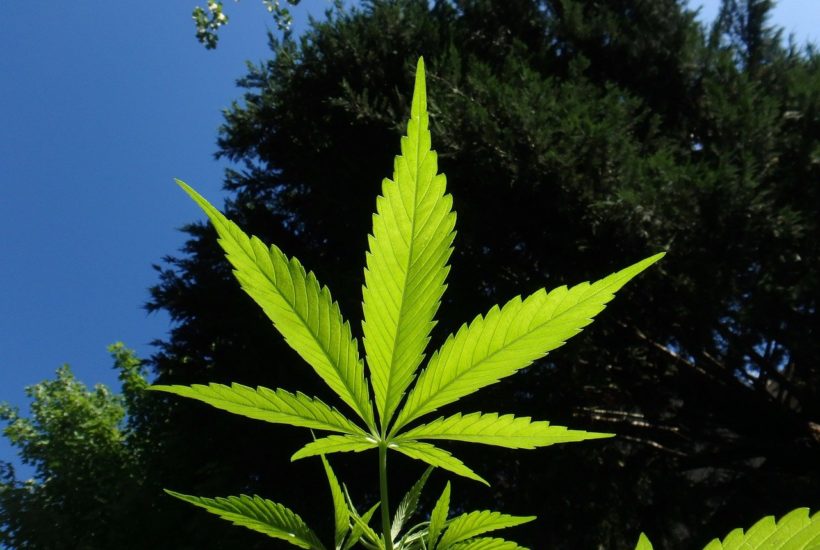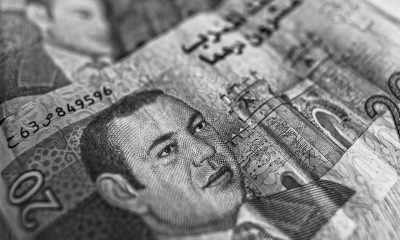Cannabis
Cannabis legalization in Morocco would increase the country’s exports
Moroccan Interior Minister introduced the cannabis legalization bill to parliament in April. In the meantime, the government has approved the draft law. But now MPs still need to ratify it. Most of the country’s cannabis comes from the economically depressed Rif region in the north. While cultivation is tolerated, farmers often live in poverty and fear in an environment of crime.

Morocco could soon be richer in a legal cannabis export. A bill to legalize the cultivation of cannabis for medical purposes is currently debated in parliament. If the law clears the final hurdles in the coming weeks, the kingdom could become the second country in the region to legalize cannabis in this context. Lebanon made the first move in 2020.
According to several international institutions, including the UN and the European Monitoring Center for Drugs and Drug Addiction, Morocco is one of the world’s largest producers of cannabis, as well as the largest supplier of illicit cannabis products such as hashish. Much of these products enter the EU through various smuggling routes.
Read more about the legalization of cannabis in Morocco and find the latest cannabis news in the world with the Hemp.im mobile app.
The Moroccan cannabis bill is highly controversial
In the run-up to parliamentary, regional, and local elections in September, it is recognizably dividing public opinion. It is therefore difficult to say whether the bill will pass, says Khalid Mouna, professor of anthropology at Moulay Ismail University in Meknes.
The draft law proposes a national agency for cannabis and farmers’ cooperatives to regulate cultivation. If cannabis were legalized, it would be “the ideal condition for Morocco to attract large-scale investment in the infrastructure it needs to serve the lucrative market,” according to a 2019 report by cannabis market research firm New Frontier Data. Moroccan farmers would then also have the opportunity to enter the trade in other cannabis-related product
The idea of cannabis legalization has been discussed before, he said. Most of the time, however, it’s just been a tactic to win support from voters in cannabis-growing regions that are often economically disadvantaged, he said.
This time, however, it could be different, says Tom Blickman, who researches international drug policy at the Transnational Institute in Amsterdam. “It’s obviously a seriously driven initiative. Because it comes from the government. And behind the government is the royal palace.” So far, he said, proposals to that effect have been put forward by the opposition.
UN decision as legal basis
The current campaign for legalization began in early December 2020 during a meeting of the UN Commission on Narcotic Drugs in Austria. The World Health Organization had recommended removing cannabis from the list of dangerous drugs, thus allowing its medical use. The UN Commission adopted the WHO recommendation by a narrow majority.
For Moroccan Interior Minister Abdelouafi Laftit, this provided the legal basis to introduce the cannabis legalization bill to parliament in April. In the meantime, the government has approved the draft law. But now MPs still need to ratify it.
Most of the country’s cannabis comes from the economically depressed Rif region in the north. While cultivation is tolerated, farmers often live in poverty and fear in an environment of crime.
Prelude to a campaign: in early December 2020, the World Health Organization had recommended removing cannabis from the list of dangerous drugs, allowing its medical use. The UN commission adopted the WHO recommendation by a narrow majority. For Moroccan Interior Minister Abdelouafi Laftit, this provided the legal basis to introduce the cannabis legalization bill to parliament in April. In the meantime, the government has approved the draft law. Now, however, MPs must ratify it.
The bill proposes a national agency for cannabis and farmer cooperatives to regulate cultivation. If cannabis were legalized, it would be “the ideal condition for Morocco to attract large-scale investment in the infrastructure it needs to serve the lucrative market,” according to a 2019 report by cannabis market research firm New Frontier Data. Moroccan farmers would then also have the opportunity to enter the trade in other cannabis-related products, New Frontier Data said.
__
(Featured image by rexmedlen via Pixabay)
DISCLAIMER: This article was written by a third party contributor and does not reflect the opinion of Born2Invest, its management, staff or its associates. Please review our disclaimer for more information.
This article may include forward-looking statements. These forward-looking statements generally are identified by the words “believe,” “project,” “estimate,” “become,” “plan,” “will,” and similar expressions. These forward-looking statements involve known and unknown risks as well as uncertainties, including those discussed in the following cautionary statements and elsewhere in this article and on this site. Although the Company may believe that its expectations are based on reasonable assumptions, the actual results that the Company may achieve may differ materially from any forward-looking statements, which reflect the opinions of the management of the Company only as of the date hereof. Additionally, please make sure to read these important disclosures.
First published in Qantara.de, a third-party contributor translated and adapted the article from the original. In case of discrepancy, the original will prevail.
Although we made reasonable efforts to provide accurate translations, some parts may be incorrect. Born2Invest assumes no responsibility for errors, omissions or ambiguities in the translations provided on this website. Any person or entity relying on translated content does so at their own risk. Born2Invest is not responsible for losses caused by such reliance on the accuracy or reliability of translated information. If you wish to report an error or inaccuracy in the translation, we encourage you to contact us.

-

 Crowdfunding1 week ago
Crowdfunding1 week agoSavwa Wins Global Design Awards and Launches Water-Saving Carafe on Kickstarter
-

 Business4 days ago
Business4 days agoDow Jones Nears New High as Historic Signals Flash Caution
-

 Business2 weeks ago
Business2 weeks agoFed Holds Interest Rates Steady Amid Solid Economic Indicators
-

 Crypto20 hours ago
Crypto20 hours agoBitcoin Surges Toward $110K Amid Trade News and Solana ETF Boost
























